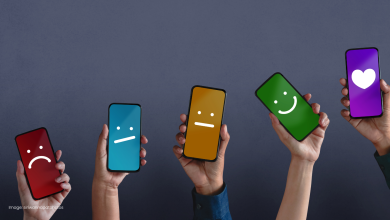
Ipsos recently released its global report on Understanding Asia, which discusses technology, AI, and economic confidence. Notably, it shows Asia-Pacific (APAC) is particularly excited about the impact of AI, with countries like China, Indonesia, and Thailand leading in both understanding and enthusiasm. The report indicates that over 70% of APAC respondents believe AI will profoundly impact their daily lives within the next few years, affecting both lifestyle and employment.
Yet, amid the optimism, 57% of Gen Z wish they had grown up in the same era as their parents, reflecting a desire to return to a simpler time. According to Her Campus, they were obsessed with nostalgia like the Y2K aesthetic fashion trends and digital cameras. The era described is when the world existed before smartphones, and basically, the technology is not as advanced as today. They probably wondered how simple life used to be.
Unlike Gen Z, older generations such as Gen X and Millennials have witnessed the evolution of technology from the pre-smartphone era to the present. They’ve seen how mobile phones, social media, and digital technology have transformed the way we live, work, and communicate.
As content creator and influencer Zerman Zane shared, he experienced life before smartphones, where time was spent differently—immersed in activities like gaming without the constant connectivity and digital distractions that smartphones bring today. While this kind of experience is foreign to many Gen Zers, they may still feel a sense of longing for it, partly because of the overwhelming influence technology has had on their lives.
Gen Z’s nostalgia for “simpler times” can be understood as a coping mechanism, especially in light of the challenges they face. With mental health concerns rising among this generation, including anxiety and depression, and compounded by events like the COVID-19 pandemic, this nostalgia serves as a form of emotional comfort.
While it’s impossible to turn back the clock, the focus now shifts to the future: What happens when businesses adopt Islamic practices—values rooted in ethics, fairness, and social responsibility—through Gen Z’s lens?
Key Islamic Business Values
Islamic values in business emphasize honesty, fairness, and responsibility toward people and society, avoiding prohibited practices like interest. Such businesses prioritize integrity, fair treatment, and accountability.
They also promote ethical leadership, essential for shaping a business’s image. Gen Z, in particular, has high expectations; according to Deloitte, 54% of Gen Z and 48% of millennials pressure employers to address climate change, with some willing to change jobs if they don’t. Gen Z values businesses that care about social issues and have a clear purpose. Islamic business ethics, which focus on honesty and responsibility, can help companies build trust and show they are committed to making a positive impact.
Major Areas of Impact
Through Gen Z’s lenses, businesses will focus on being environmentally friendly, fair, and ethical. They will work on reducing waste, using sustainable resources, and treating people fairly. They are more likely to choose brands that take real steps to protect the environment, support social equality, and make responsible financial choices.
So, through the eyes of Gen Z, businesses will:
Look beyond just environmental sustainability and profits
Gen Z’s nostalgia for simpler times reflects their desire for a more honest, fair world—not just a greener one. They long for a time when connections felt genuine and people were more in tune with each other and the environment. They also focus on social justice, mental health, and economic fairness, holding businesses accountable for their actions. These concerns cause anxiety, and Gen Z expects businesses to act on them.
Businesses that follow Islamic values, which prioritize people over profits, will resonate with Gen Z. Ethical practices like fair treatment, waste reduction, and promoting mental health and equal pay align with their values. Additionally, businesses that prioritize transparency in product creation and take actions to benefit both people and the environment will earn Gen Z’s loyalty.
Focus on fairness, transparency, and simplicity
Gen Z favors a simpler, more meaningful lifestyle that emphasizes fairness beyond just minimalism. For them, fairness is a standard they expect in every part of life, from work to relationships, where inclusivity and equal opportunities are a must.
Their strong sense of fairness also drives them to demand transparency from businesses. They believe transparency makes life simpler, avoiding the confusion that can come from misleading information, which is common today. Islamic values, like fairness and honesty, discourage spreading false information (fitnah) because it can harm others. So, by being transparent and fair, businesses not only simplify things for Gen Z but also reflect values aligned with Islamic principles.
Conclusion
Combining Gen Z’s longing for simpler times with Islamic business practices creates a great chance for companies to change for the better. Gen Z values authenticity, fairness, and community, which can help guide businesses toward being more ethical and responsible. This way, companies can earn the trust of young consumers who care more about purpose than just profits.
Looking forward, using these values in business can lead to a fairer and more sustainable world that honors the past while moving forward. Although this path may have its challenges, the potential for positive change is strong, starting with a commitment to practices that resonate with Gen Z’s hopes and values.




